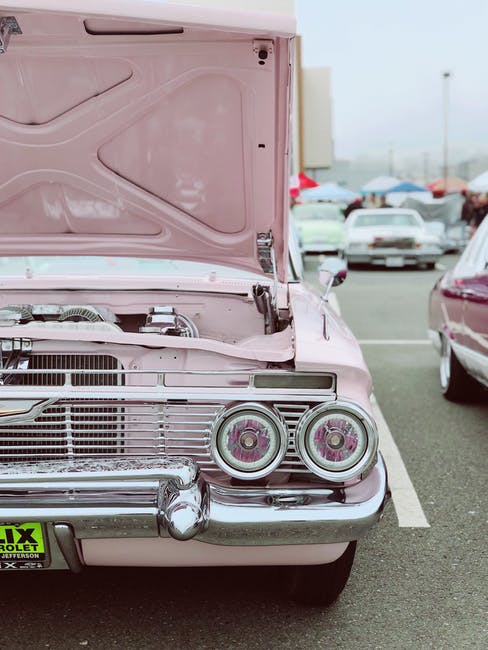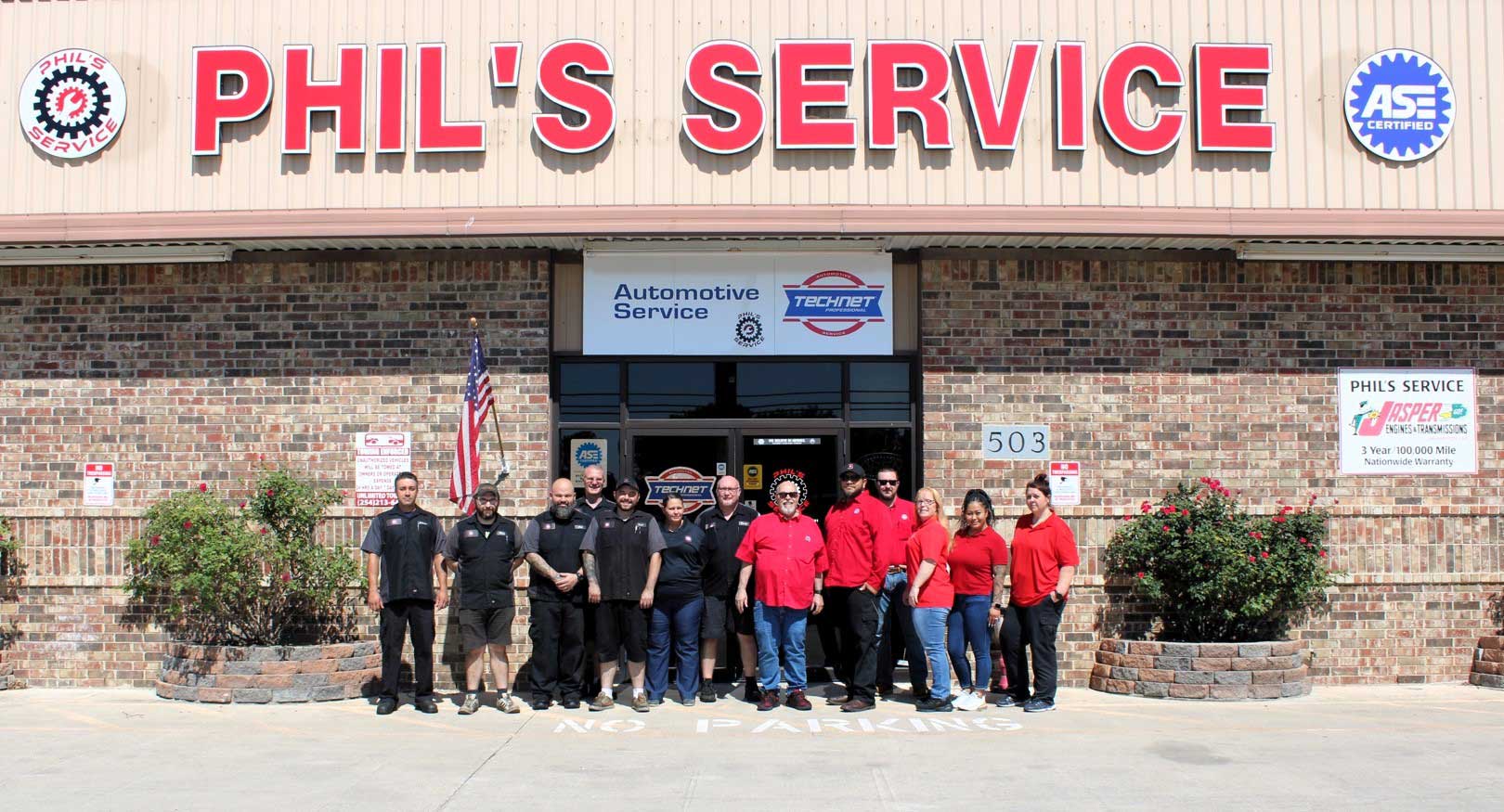How Your Radiator Keeps Your Engine Running
Is your engine overheating? Pay attention: that's a huge sign that there's something seriously wrong with your car. Most likely, it's your radiator.
We'll go over what your radiator does, how to keep it working properly and when you need to see a mechanic.
What is an Engine Radiator?
Your radiator is at the very front of your car's engine space. Usually, there's a fan directly behind it to help keep it cool. It has long thin vented slats, like the gills on a mushroom that are often sharp to the touch.
What Does a Radiator Do?
The radiator is a vital part of your engine's cooling system. When your engine runs it creates a lot of heat. When your engine gets too hot for too long it damages various components. It can crack a head gasket, warp cylinders or more.
Your radiator is full of antifreeze (or at least it should be!)This antifreeze is pumped through the engine collecting heat along the way. It then goes back to the radiator at the front of the engine where it can cool down and go back through your engine again.
Without your radiator, that antifreeze won't cool off and won't keep your engine cool.
The Importance of Antifreeze
Antifreeze is the liquid that goes through the radiator and all the tubing in your engine to keep it from getting too hot. You should check your antifreeze levels as part of your regular vehicle maintenance.
It's a bright green fluid that you should be able to see easily, especially if it's leaking.
If you do notice an antifreeze leak, you need to clean it up and maintain it immediately. Antifreeze smells great to dogs and other animals, and they like to drink it.
The problem? It's incredibly toxic to dogs. Less than 3 ounces is enough to kill a dog. So be a good neighbor and clean up antifreeze spills immediately.
Can I Use Water?
If you're in a pinch, you can use water instead of, or as a substitute to antifreeze. But this is only a good option if you have a bad antifreeze leak or you're very low.
The problem with doing this is water does freeze. So if the water is in your radiator without enough antifreeze, it will freeze, expand, and ruin your cooling system.
If it's cold and you have the wrong antifreeze to water ratio, it will run as a slush. This means your system won't know your engine is overheating until it seizes up and is completely ruined.
Most of the time a 50/50 antifreeze water ratio is a good mix. Make sure to read the label carefully to see if you need to dilute the antifreeze.
How to Check Antifreeze and Maintain Your Radiator
Your radiator will have an overfill area or reservoir for antifreeze. When it heats up, it expands and often fills more space than what's available in the cooling system. So it goes to the reservoir.
There will be a line guiding you where the proper fill level is. Make sure that the reservoir is at this fill line, but not over it.
If it's too full, the reservoir will spit out extra radiator fluid as it gets too hot. While this is harmless it smells bad and will make your engine smoke as it burns off the antifreeze.
Make sure there's plenty of antifreeze in the radiator itself too. Remove the cap on top of the radiator, and check to see that antifreeze is all the way to the top.
NOTE: Never check the radiator fluid when the engine is hot!
The antifreeze can be as hot as 100 to 250 degrees Fahrenheit from a hot engine. When you take off the radiator cap, it can spit hot antifreeze onto you.
This can lead to nasty burns. In fact, according to NCBI, when people turned to a hospital for radiator burns, as a mean, 11% of their bodies were burned.
Seriously, just wait for the engine to cool down.
Common Radiator Problems
Most likely if you're experiencing an issue with your cooling system, you'll notice it because you're leaking antifreeze. Your radiator could be cracked or damaged, the thermostat can go bad, or you may have leaky hoses.
None of these are major problems - until they are. A cracked radiator can split or a hose can break. A broken thermostat means you don't know how hot your car is. This means you don't have a good gauge on other problems that might be going on in your vehicle.
When to See a Mechanic
If you notice you're often running low on antifreeze, take it to a mechanic. You should see a mechanic even if it looks like your antifreeze levels are normal, but your car is still having overheating problems.
A hot car can't safely run, and every time you drive you to risk getting stuck on the side of the road.
Most likely there's something wrong with the cooling system. A mechanic can diagnose the problem properly and get you a good repair.
Is Your Engine Overheating? It Could be the Radiator
When your engine is overheating, there's almost always something wrong with the cooling system. Engine overheating is a serious problem you can't ignore. Doing so can cause your entire engine to seize up, which will prevent your car from running at all, and you'll need to replace your engine.
To keep your cooling system running properly take good care of your radiator. Make sure you have the right amount of antifreeze with the right ratio, and you regularly take your car in for tune-ups.
Worried about your radiator or think it's time for a tune-up? Request an appointment today!
Your engine works hand in hand with your radiator. Here is everything you need to know to take care of your radiator and prevent your engine overheating
Is your engine overheating? Pay attention: that's a huge sign that there's something seriously wrong with your car. Most likely, it's your radiator.
We'll go over what your radiator does, how to keep it working properly and when you need to see a mechanic.
What is an Engine Radiator?
Your radiator is at the very front of your car's engine space. Usually, there's a fan directly behind it to help keep it cool. It has long thin vented slats, like the gills on a mushroom that are often sharp to the touch.
What Does a Radiator Do?
The radiator is a vital part of your engine's cooling system. When your engine runs it creates a lot of heat. When your engine gets too hot for too long it damages various components. It can crack a head gasket, warp cylinders or more.
Your radiator is full of antifreeze (or at least it should be!)This antifreeze is pumped through the engine collecting heat along the way. It then goes back to the radiator at the front of the engine where it can cool down and go back through your engine again.
Without your radiator, that antifreeze won't cool off and won't keep your engine cool.
The Importance of Antifreeze
Antifreeze is the liquid that goes through the radiator and all the tubing in your engine to keep it from getting too hot. You should check your antifreeze levels as part of your regular vehicle maintenance.
It's a bright green fluid that you should be able to see easily, especially if it's leaking.
If you do notice an antifreeze leak, you need to clean it up and maintain it immediately. Antifreeze smells great to dogs and other animals, and they like to drink it.
The problem? It's incredibly toxic to dogs. Less than 3 ounces is enough to kill a dog. So be a good neighbor and clean up antifreeze spills immediately.
Can I Use Water?
If you're in a pinch, you can use water instead of, or as a substitute to antifreeze. But this is only a good option if you have a bad antifreeze leak or you're very low.
The problem with doing this is water does freeze. So if the water is in your radiator without enough antifreeze, it will freeze, expand, and ruin your cooling system.
If it's cold and you have the wrong antifreeze to water ratio, it will run as a slush. This means your system won't know your engine is overheating until it seizes up and is completely ruined.
Most of the time a 50/50 antifreeze water ratio is a good mix. Make sure to read the label carefully to see if you need to dilute the antifreeze.
How to Check Antifreeze and Maintain Your Radiator
Your radiator will have an overfill area or reservoir for antifreeze. When it heats up, it expands and often fills more space than what's available in the cooling system. So it goes to the reservoir.
There will be a line guiding you where the proper fill level is. Make sure that the reservoir is at this fill line, but not over it.
If it's too full, the reservoir will spit out extra radiator fluid as it gets too hot. While this is harmless it smells bad and will make your engine smoke as it burns off the antifreeze.
Make sure there's plenty of antifreeze in the radiator itself too. Remove the cap on top of the radiator, and check to see that antifreeze is all the way to the top.
NOTE: Never check the radiator fluid when the engine is hot!
The antifreeze can be as hot as 100 to 250 degrees Fahrenheit from a hot engine. When you take off the radiator cap, it can spit hot antifreeze onto you.
This can lead to nasty burns. In fact, according to NCBI, when people turned to a hospital for radiator burns, as a mean, 11% of their bodies were burned.
Seriously, just wait for the engine to cool down.
Common Radiator Problems
Most likely if you're experiencing an issue with your cooling system, you'll notice it because you're leaking antifreeze. Your radiator could be cracked or damaged, the thermostat can go bad, or you may have leaky hoses.
None of these are major problems - until they are. A cracked radiator can split or a hose can break. A broken thermostat means you don't know how hot your car is. This means you don't have a good gauge on other problems that might be going on in your vehicle.
When to See a Mechanic
If you notice you're often running low on antifreeze, take it to a mechanic. You should see a mechanic even if it looks like your antifreeze levels are normal, but your car is still having overheating problems.
A hot car can't safely run, and every time you drive you to risk getting stuck on the side of the road.
Most likely there's something wrong with the cooling system. A mechanic can diagnose the problem properly and get you a good repair.
Is Your Engine Overheating? It Could be the Radiator
When your engine is overheating, there's almost always something wrong with the cooling system. Engine overheating is a serious problem you can't ignore. Doing so can cause your entire engine to seize up, which will prevent your car from running at all, and you'll need to replace your engine.
To keep your cooling system running properly take good care of your radiator. Make sure you have the right amount of antifreeze with the right ratio, and you regularly take your car in for tune-ups.
Worried about your radiator or think it's time for a tune-up? Request an appointment today!


